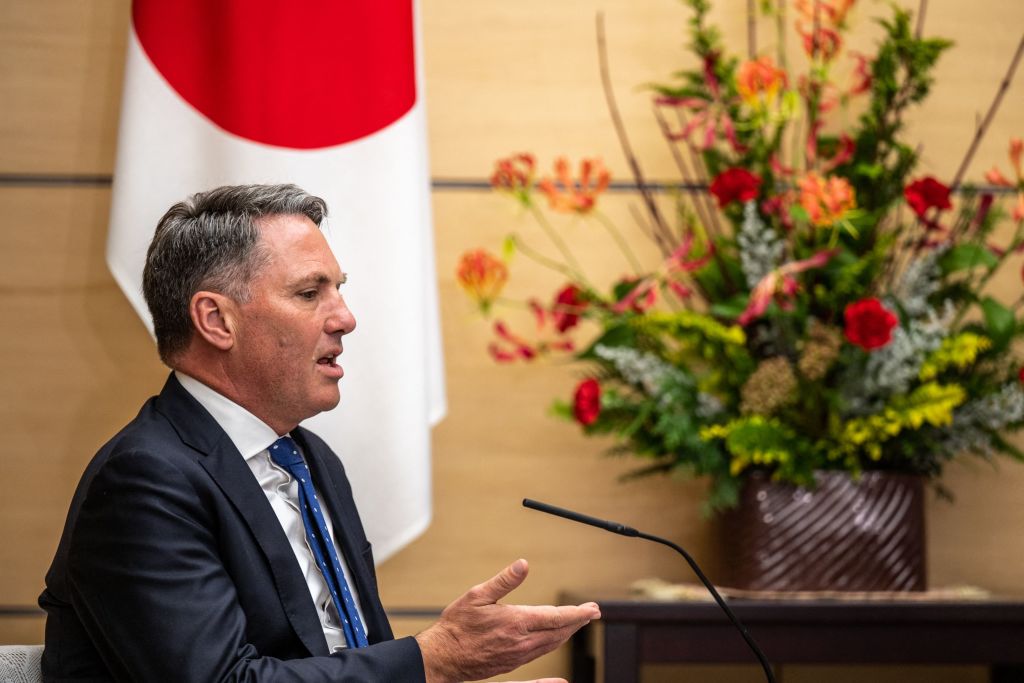Japanese forces are set to join US marine rotations in Australia, fortifying ties between Australia, the United States and Japan.
Japanese forces will join U.S. Marine rotations in the Northern Territory as Australia, the United States, and Japan deepen ties in response to Beijing’s increasing aggression in the Asia-Pacific region.
Defence Minister Richard Marles hosted U.S. Defense Secretary Lloyd Austin and Japanese Defense Minister Gen Nakatani on Nov. 17 for a trilateral ministers’ meeting. The meeting occurred in Darwin and was the first such meeting to take place in Australia.
Marles said that after discussions with Natakani at the annual 2+2 Ministerial Dialogue diplomatic summit in September, both nations considered increasing familiarity between their defence forces.
Japanese troops joining activities during the marine rotation was an apparent opportunity.
“We have spoken to Japan about having their amphibious rapid deployment brigade doing training with our own defence force, with our own army, and with the U.S. Marines,” Marles told Sky News.
“Having a more forward-leaning opportunity for greater training with Japan and the U.S. together is a really fantastic opportunity.”
Japan will join the United States and Australia during Talisman Sabre 2025, which will be held in mid-July.
Talisman Sabre is an annual joint military exercise designed by the United States and Australia, where 19 nations are invited to participate, improving cooperation between forces. It consists of live fire and field training exercises.
Australia will also be invited to join, for the first time, Orient Shield, an annual training exercise between Japanese and U.S. ground forces.Beijing’s expanding influence and military presence in the Asia-Pacific region has alarmed Washington and other affected countries.
“We reiterate our serious concern about destabilising actions in the East and South China Seas, including dangerous conduct by [China] against Philippines and other coastal state vessels,” the defence leaders said in a joint statement.
In August, Chinese coast guard vessels collided with Philippine coast guard vessels in multiple incidents.
“We reiterate our strong opposition to any unilateral attempts to change the status quo by force or coercion,” the joint statement said.
The three nations also welcome greater defence cooperation with the Philippines and India and have indicated that they aim to deepen defence ties with Pacific Island nations.
Meanwhile, in response to a question of this move potentially angering Beijing, Marles said the decision for Japanese forces to join U.S. Marine rotations was made to build Australian capability.
“What we are focused on … is building the best relationships possible with like-minded countries, with our friends and with our allies,” he said.
“Japan is obviously a country with whom we share values, a democracy.
“We have a huge strategic alignment with Japan,” Marles said.
“This very much came out of our bilateral meeting in September, but it’s been a theme of the conversations we’ve been having with Japan now for a number of years.”
Marles said that his message to Pete Hegseth, President-elect Donald Trump’s choice for U.S. defense secretary, would be that American leadership matters.
“If there is a world which is only determined by power and might, that doesn’t leave a lot of space for most countries in the world, and countries like Australia,” he said.

